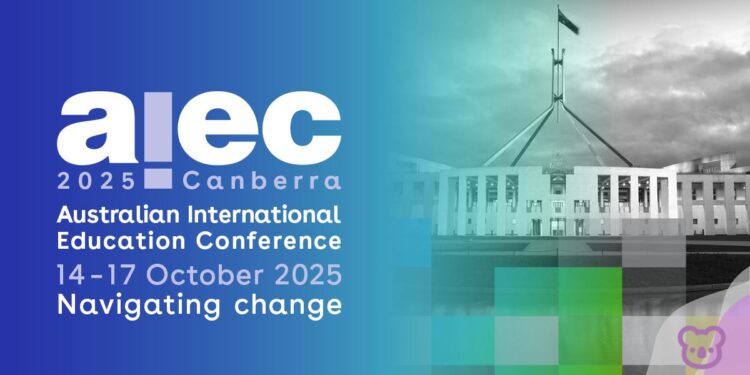“In international education, every job is a green job,” says Ainslie Moore, Executive Director, External Engagement at the Australia Institute of Future Education, and Co-Chair of the Climate Action Network for International Educators (CANIE) Oceania Chapter.
“Students know this, and you need to know this too,” she said ahead of chairing a panel session at next week’s Australian International Education Conference (AIEC) in Canberra, Beyond greenwashing: meaningful climate action in international education. The session will be held on Wednesday, 15 October, 4.20-5.20pm in the Bradman Theatre.
Much of the sustainability work in international education has occurred in the learning abroad space, which reflects the influence of outbound and short-term inbound student behaviour in driving change, Moore believes.
However, there are still many ways to reduce the climate impact of the work in other areas of the international education sector, including marketing, recruitment and admissions. Moore is encouraging everyone to attend the session to “learn how to go beyond the greenwashing and apply a sustainability lens to your work”.
Moore will be joined on the panel by Emily O’Callaghan, CEO of miXabroad, who will take a sector-wide view of how Australian institutions are approaching climate action. Drawing on the International Education Sustainability Group Climate Action Barometer, she will highlight examples and explore the many ways these could be implemented more broadly by Australian institutions.
Amy Ryan, Head of Student Mobility and Exchange at The University of Sydney, will share a case study on how the university is putting its climate commitments into practice beyond learning abroad.
QS Quacquarelli Symonds introduced its sustainability rankings in 2022 with the launch of the QS World University Rankings: Sustainability. A QS representative will join the panel to discuss what the rankings means for good practice and what students are saying about sustainability in their survey responses.
Moore is also challenging attendees and exhibitors alike to reflect on their own actions and choices in the context of sustainability. Reflecting a wider focus on sustainability in the sector, the AIEC has adopted the Think Sustainability Guide, which sets out seven targets to promote more sustainable practices at the conference. You can find out more about sustainability at AIEC here.
Climate Action Network for International Educators (CANIE)
CANIE is a global, grassroots initiative that mobilises the international education sector to take meaningful, collaborative action on climate. Its work is underpinned by the CANIE Accord, through which signatory organisations commit to aligning their practices with global climate goals and reducing the sector’s environmental impact.
If you’re not already a member, you can join on the CANIE website, which also provides resources such as a toolkit, information about the Accord and more. You can also visit CANIE at the AIEC Impact Lounge.
The full AIEC2025 online program is available here.
















